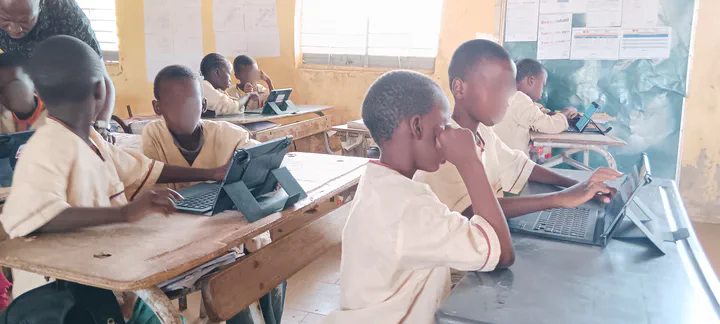Offline Libraries and Student Learning in Remote Areas: A Randomized Experiment in Rural Senegal
Apr 15, 2024· ,,,·
0 min read
,,,·
0 min read
Mathilde Col
Luc Behaghel
Simon Briole
Quentin Daviot
 Children using tablets in a class in June 2024.
Children using tablets in a class in June 2024.Abstract
This paper studies the impact of offline digital technologies on teacher practices and student learning in remote schools. We conducted a cluster-randomized controlled trial in 140 primary schools in the Kedougou region of Senegal, where internet access is nearly absent. The intervention provided offline digital libraries containing educational materials accessible without connectivity, along with tablets for students and SD cards for teachers. High-frequency usage data show substantial initial adoption, followed by a decline in the second year. The program significantly improved teachers’ digital competencies and their ability to integrate digital tools into instruction, but did not enhance teaching quality or subject knowledge. For students, average effects on learning were modest but varied sharply with infrastructure. In schools connected to the electricity grid, test scores increased by 0.3–0.5 standard deviations, while non-electrified schools experienced no gains or small losses. The evidence points to electricity as a key enabling condition: sustained engagement and effective classroom use depended on sufficient charging capacity. These findings suggest that offline digital technologies can enhance learning in low-connectivity settings, but their success critically depends on complementary infrastructure.
Type
Publication
Working paper